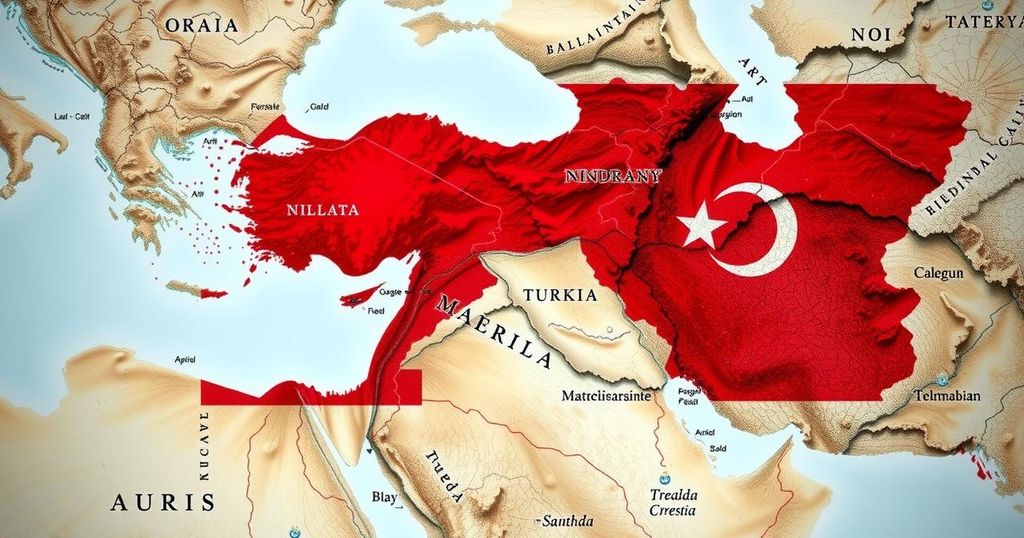The Geopolitical Shift in Syria: Turkey’s Rise Amidst Assad’s Fall

The collapse of Assad’s regime in Damascus has diminished the influence of Russia and Iran while elevating Turkey’s role as a potential leader in post-war Syria. Diplomatic efforts prior to the regime’s fall were rendered ineffective amid the quick developments. Turkey emerges poised to help shape a new government structure, necessitating cooperation among Syrian factions for stability.
The recent fall of Damascus has dramatically shifted the geopolitical landscape in Syria, sidelining traditional power players like Russia and Iran while catapulting Turkey to the forefront. Just hours before these significant developments, key diplomats from Russia, Iran, and Turkey had convened in Doha with several Arab states to discuss the ongoing conflict and proposed a joint statement advocating for the preservation of Syria’s territorial integrity. However, their efforts were quickly rendered ineffective by the swift escalation of events that saw the Assad regime collapse.
Russian Foreign Minister Sergei Lavrov faced uncomfortable inquiries regarding Russia’s role in the Syrian conflict during the summit, ultimately expressing frustration and deflecting questions to other topics. Despite his insistence that jihadist groups posed a threat to Syria, the quick shift in power dynamics reflected the growing irrelevance of the dialogue these diplomats sought to maintain.
Meanwhile, Iranian officials appeared increasingly strained, grappling with the consequences of a diminished influence in Syria and a collapse of strategic plans supporting Assad. As Iran’s foothold in Syria weakened, speculation emerged regarding their future strategy in the region, particularly concerning the safety of their connections to Hezbollah in Lebanon.
Conversely, Turkey, represented by Foreign Minister Hakan Fidan, might emerge as the principal beneficiary of the regime’s downfall. With an established network of Syrian militias and an ally in the Hayat Tahrir al-Sham (HTS) group, Turkey possesses significant leverage to assist in mediating a new government in Syria. As tumultuous power shifts unfold, the necessity for a structured transition to a consensus government becomes increasingly critical for the region’s stability.
The Syrian conflict has drawn in global powers, notably Russia and Iran, which have supported Bashar al-Assad’s regime, while Turkey has positioned itself in opposition to Assad. The recent diplomatic gatherings aimed to stabilize the situation through peaceful negotiations, but following Assad’s fall, these efforts have been undercut by the rapid changes on the ground. The implications of this power shift not only affect Syria’s internal politics but also alter the geopolitical dynamics in the Middle East.
The fall of Damascus signals a pivotal moment in the Syrian conflict, showcasing the decline of Russian and Iranian influence while simultaneously enhancing Turkey’s position in the region. This shift underscores the complexities of international diplomacy amid a volatile conflict where the power dynamics can change swiftly, emphasizing the urgency for a responsible transition in Syrian governance to foster stability and peace.
Original Source: www.theguardian.com







